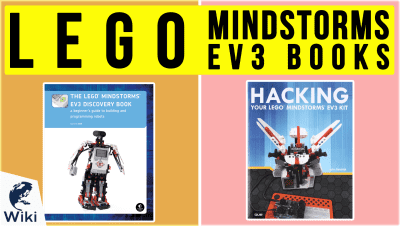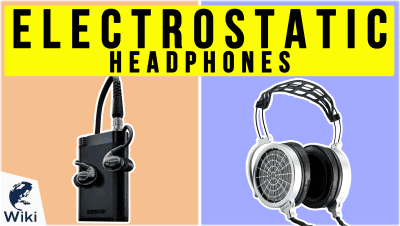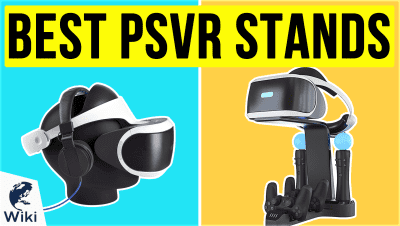7 Empathetic Voices Raising Awareness About Mental Health
Mental illness isn't always as visible to others as an infection or a broken leg, but it can be just as devastating and requires care, not judgment. The seven groups and individuals listed here work to end the stigma associated with mental illness and advocate for policies that support those struggling with mental health issues. This video was made with Ezvid Wikimaker.
People & Organizations Advocating For Mental Health
| Name | Description |
|---|---|
| Scottish Mental Health Arts Festival | Annual event that celebrates the artistic achievements of people with experience of mental health issues |
| Angela M. Carter | Author, poet, motivational speaker, artist, and advocate/activist |
| Centre for Urban Design and Mental Health | Think tank dedicated to figuring out how to design better mental health into cities |
| Take This | Organization that provides resources, support, and consultation tailored for the unique needs of the game development community |
| Dr. Dawn Kamilah Brown | ADHD expert, author, CEO, and certified child, adolescent, and adult psychiatrist |
| Money and Mental Health Policy Institute | Charity committed to breaking the link between financial difficulty and mental health problems |
| SuperBetter | App, book, and method designed to activate the psychological strengths of game play in order to build resilience and success in real life |
U.S. Mental Health Facts
- 1 in 5 U.S. adults experiences mental illness each year
- 50% of all lifetime mental illness begins by age 14, and 75% by age 24
- Suicide is the 2nd leading cause of death among people aged 10-34
- The average delay between onset of mental illness symptoms and treatment is 11 years
- People with depression have a 40% higher risk of developing cardiovascular and metabolic diseases than the general population
- 19.3% of U.S. adults with mental illness also experienced a substance use disorder in 2018
- The rate of unemployment is higher among U.S. adults who have mental illness (5.8%) compared to those who do not (3.6%)
- 41% of the people with mental disorders receive professional health care or other services
- Mental illness is associated with lower use of medical care, reduced adherence to treatment therapies for chronic diseases and higher risks of adverse health outcomes
- Up to 25% of primary care patients suffer from depression, but primary care doctors identify only 31% of these patients
- 4% of young adults reported forgoing mental health care in the past year, despite self-reported mental health needs
- Major depressive disorder is the leading cause of disability in the U.S. for ages 15-44
- Women are nearly twice as likely to suffer from major depression than men
- Four times as many men than women commit suicide
- Suicidal ideation among adults increased from 3.77% in 2012 to 4.19% in 2017
- The proportion of youth with private insurance that did not cover mental or emotional difficulties went from 4.6% in 2012 to 8.1% in 2017
- 8.4% of children aged 6 to 17 have been diagnosed with anxiety and/or depression
Breaking the Stigma of Mental Illness
Empathetic Books About Mental Health Issues
In Depth
The prevalence of mental illness in contemporary society is becoming increasingly clear, as more and more people every day are diagnosed with disorders from depression to schizophrenia. Those suffering from such conditions often face additional hardships, due to widespread ignorance, lack of support systems, and feelings of isolation or shame. Presented here, in no particular order, are seven organizations and individuals working to shed light on - and offer solutions for - the challenges facing those in search of psychological health.
#1 on the list is the Scottish Mental Health Arts Festival, an annual celebration of artistry and wellness, which aims to challenge preconceived ideas about disorders of the mind and brain. Taking place in venues across Scotland, the Festival showcases works by people who have experienced psychological difficulties, seeking to encourage positive adjustment and explore the nature of the creative mind. Launched in 2007 by the Mental Health Foundation, the program has grown significantly, and expanded to include activities all year round.
Each year, the festival honors exceptional achievements in the artistic exploration of psychological health, through its International Film Awards and Writing Awards. It also hosts the Talking Heads project, a collection of multimedia works, which range from interviews with creators to meditations on mind and wellness. Out of Sight, Out of Mind, another signature program, is a collaborative exhibition featuring expressions of the experience of mental illness. The festival seeks to continue serving as a venue for discussion of challenging issues, and welcomes interest from those looking to get involved.
Out of Sight, Out of Mind, another signature program, is a collaborative exhibition featuring expressions of the experience of mental illness.
Next up at #2 is Angela M. Carter, a writer, motivational speaker, spoken word performer, visual artist, and activist. Born and raised in rural Virginia, she found her artistic voice while living abroad in England, following a one-month scholarship to study at the University of Bath. "Memory Chose a Woman's Body," her first published book, is a poetry memoir exploring the effects of the silences endured after abuse, neglect, and depression. Her work has been nominated for the Pushcart Prize and the Virginia Library Literary Award.
Carter is an advocate for the power of creative expression as a path to healing. She has spoken at events like the Walk For Hope, a gathering to raise awareness of depression and suicide, and the Conversations on Sexual Violence symposium at Eastern Mennonite University. Through her writing, readings, and other speaking engagements, she seeks to inspire others to recover from trauma by breaking the self-imposed silence of shame.
#3 in our rundown is the Centre for Urban Design and Mental Health, a think tank dedicated to helping planners, leaders, and professionals use smarter design to improve mental health in cities. Viewing the everyday environment as a strong influence on well-being and happiness, this organization produces and curates research, reflections, and proposals on the potential for improvements in public spaces. Their articles highlight the ways that metropolitan populations are impacted by factors like color, exposure to nature, and preservation of historic architecture.
Viewing the everyday environment as a strong influence on well-being and happiness, this organization produces and curates research, reflections, and proposals on the potential for improvements in public spaces.
The Centre publishes the Journal of Urban Design and Mental Health, a platform for work by researchers, in a wide variety of fields, who are investigating the interactions between lived environments and psychological wellness. Their articles draw on case studies of major cities, from Montreal to Hong Kong, discussing salient features and possibilities for improvement. UD/MH has hosted several interdisciplinary dialogues, facilitating creative exchanges on the topic of healthy cities between academics, architects, medical professionals, and other interested parties. They welcome involvement from those looking to assist their mission, with opportunities including internships, fellowships, and contributions to their journal or blog.
Entry #4 is Take This, a nonprofit fighting to decrease stigma and increase support for mental health in the gaming community. The group partners with experienced professionals, researchers, and prominent figures in the industry, to develop resources for gamers struggling with psychological difficulties. Their Ambassador Program recruits content producers to spread positive messaging to viewers, while their AFK Rooms provide spaces for relaxation, wellness, and empathy, in the midst of crowded conventions. The organization's online platforms also share words of encouragement and tips for self-care.
Take This provides a wealth of informational tools for game developers and players facing struggles in their inner life. Their website features educational articles written by mental health professionals and researchers, covering topics from the value of advocacy to the interpersonal benefits of gaming. The group also generates industry white papers, on issues like the dangers of pervasive overwork, and its blog hosts articles exploring questions such as depictions of mental illness, addictive behavior, and the potential of games to teach important lessons about wellness. Anyone interested in supporting Take This can make a donation, or inquire about volunteer opportunities.
Take This provides a wealth of informational tools for game developers and players facing struggles in their inner life.
Next on the list, #5, is Dr. Dawn Kamilah Brown, a practicing psychiatrist, author, speaker, and podcaster, who draws on her clinical training and personal experience with ADHD in order to help sufferers and their families. She offers mental health coaching designed to help people with attention disorders thrive, including specialized resources for athletes and mothers.
In addition to her publications and clinical work, Dr. Dawn is an outspoken advocate for better understanding of mental illness in general, and ADHD in particular. With frequent public speaking engagements and media appearances, she works to combat misconceptions and raise awareness. Through social media, she shares messages of support and practical life management tips, offering in-depth discussions of specific topics in psychology. And on her website, she offers a line of specialized school products for children with ADHD.
Our #6 is Money and Mental Health, an independent charity dedicated to breaking the link between fiscal struggles and mental illness. They conduct research into the ways that financial difficulties and psychological problems can reinforce one another - for example, benefits administration issues interrupting treatment. From there, they develop recommendations for policies to address areas of crucial need and highlight options available for those seeking help. The organization has been successful in persuading banks and government agencies alike to adopt many of their proposals, such as instituting temporary debt relief to allow sufferers to get back on track.
They conduct research into the ways that financial difficulties and psychological problems can reinforce one another - for example, benefits administration issues interrupting treatment.
Money and Mental Health advocates for an end to practices that place undue burdens on those wrestling with depression, anxiety, and other forms of psychological distress. From intimidating debt letters to fees for benefits forms, they campaign against hurdles that reinforce feelings of isolation and helplessness. The group seeks to provide support by sharing messages of inspiration, as well as stories from those affected. People experiencing mental health challenges can help the organization's work directly, joining their community of Experts by Experience to test solutions and supply research data; professionals in relevant fields can also join their network for opportunities to contribute.
The final item on our list is #7, SuperBetter, a mobile and online game designed to help users build emotional resilience, enabling them to overcome challenges including anxiety, depression, and chronic pain. Created by designer Jane McGonigal, it offers an entertaining method for achieving success and well-being, by incorporating positive aspects of gaming into everyday life. Players can link personal goals to in-app tasks and rewards, giving them a creative framework for motivation and organization.
SuperBetter's play-based approach to self-improvement, detailed in print and bolstered by clinical studies, is designed to be adaptable to a wide variety of contexts. Their team is passionate about exploring the game's potential to help motivate students, inspire employees, and support people struggling with mental illness. They share news about relevant research and updates to the platform through their blog, and they welcome partners looking to assist them in evaluating and improving the SuperBetter method.


























